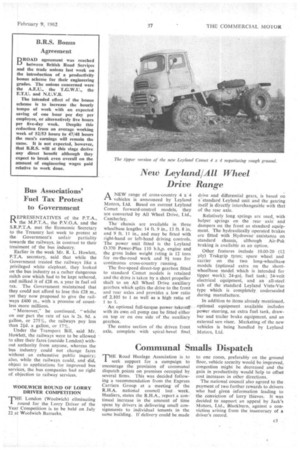Bus Associations' Fuel Tax Protest to Government
Page 33

If you've noticed an error in this article please click here to report it so we can fix it.
REPRESENTATIVES of the P.T.A., the M.P.T.A., the P.V.O.A. and the S.R.P.T.A. met the Economic Secretary to the Treasury last week to protest at the Government's unfair partiality towards the railways, in contrast to their treatment of the bus industry.
Earlier in the week Mr. R. L. Howlett, P.T.A. secretary, said that while the Government treated the railways like a privileged white elephant, they looked on the bus industry as a rather dangerous milch cow which had to be kept tethered, and milked it of £28 m. a year in fuel oil tax. The Government maintained that they could not afford to lose this £28 m., yet they now proposed to give the railways £400 m., with a promise of countless more millions.
" Moreover," he continued, "whilst on our part the rate of tax is 2s. 9d. a gallon, or 275%, the railways pay less than 2id. a gallon, or 17%.
Under the Transport Bill, said Mr. Howlett, the railways were to be allowed to alter their fares (outside London) without authority from anyone, whereas the bus industry could not change fares without • an exhaustive public inquiry; also, while the railways could, and did, object to applications for improved bus services, the bus companies had no right of objection to railway services.
















































































































